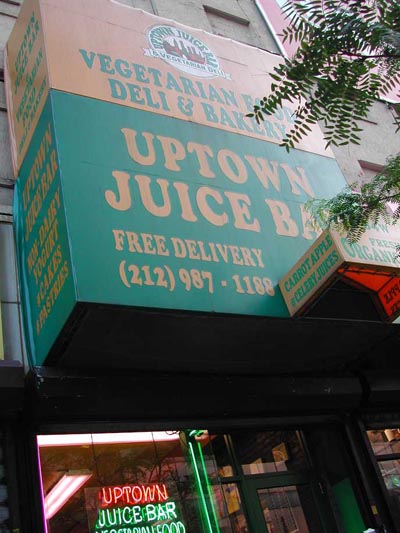
Uptown Juice Bar
Welcome back! For starters, I’d like to address the lighter side of the controversial plant we are all are familiar with, cannabis, a.k.a. hemp. The legal status of hemp seed in the United Status is somewhat of a mixed blessing. It is legal to import and sell hemp seed, but only if it has been sterilized, which diminishes its nutritional content. Even so, eating hulled hemp seed, which is readily available in most health food stores, is very good for our bodies. The oil in hemp seed has the highest essential fatty acid content (80% of total oil content) of any plant, and is optimally balanced in two of these, linoleic and linolenic acid. These two acids are involved in the conversion of food to energy, transferring oxygen in the lungs, and the retention of oxygen in the cell membrane. Ingesting the essential acids helps strengthen the immune system, keeps arteries clear, and helps maintain healthy skin and hair. Hemp seed also contains all the amino acids necessary to maintain human health. Finally, its complete protein composition is easily digestible as it is in a form similar to human blood plasma. It is a shame that political and industrial interests keep us from growing and consuming locally grown hemp seed in an uncompromising form. Hemp seed can be ground into a tasty butter, or added to various baked products, but I like it best sprinkled on salads.
One herbal remedy I’ve tried recently, Kava Kava root, may be best to avoid. Kava is normally taken for stress related conditions, and has been highly regarded as effective by some for treating anxiety. Unfortunately, it seems that taking Kava Kava can have serious detrimental effects on your liver, the organ that removes most toxins from the bloodstream. To be on the safe side try to see if Valerian root or St. John’s Wort is effective for you.





